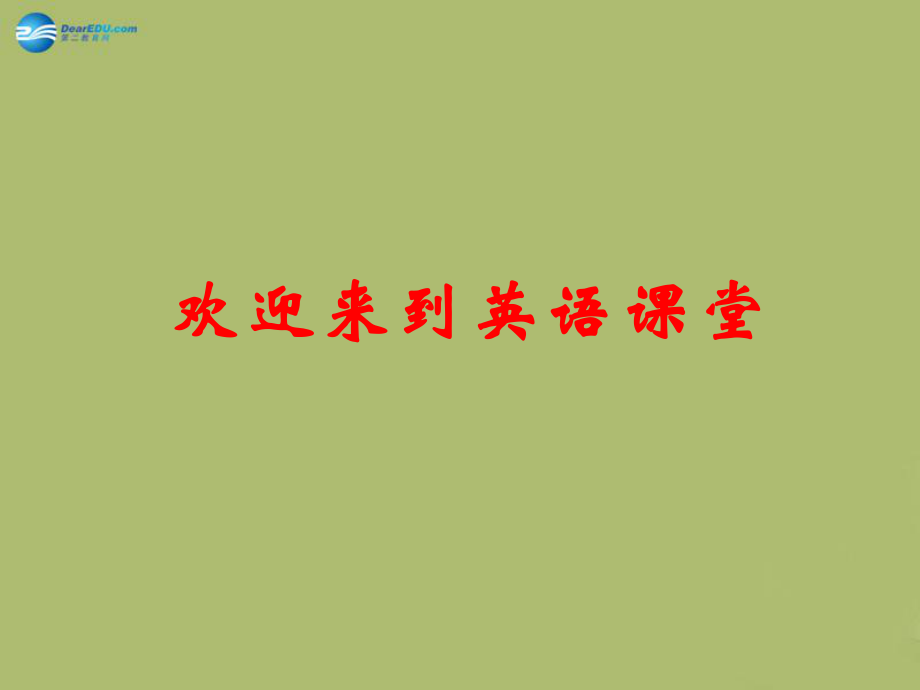《七年級(jí)英語下冊(cè) Unit 3 Could you please clean your room Section B (2a-2e)課件》由會(huì)員分享�,可在線閱讀,更多相關(guān)《七年級(jí)英語下冊(cè) Unit 3 Could you please clean your room Section B (2a-2e)課件(28頁珍藏版)》請(qǐng)?jiān)谘b配圖網(wǎng)上搜索���。
1��、歡迎來到英語課堂歡迎來到英語課堂 Unit 3Could you please clean your room?Section B(2a-2e).短語互譯短語互譯1.做家務(wù)做家務(wù);處理瑣事處理瑣事 do 2.目的是目的是;為了為了 in 3.依靠依靠;信賴信賴 on4.照料照料;愛護(hù)愛護(hù) of答案答案:1.chores2.order to3.depend4.take care5.help with 6.spend time on sth.7.as a result 8.fall ill 答案答案:5.在某方面幫助在某方面幫助;幫助做某事幫助做某事6.花時(shí)間做某事花時(shí)間做某事7.結(jié)果是結(jié)果是;因
2����、此因此8.生病生病;病倒病倒.閱讀短文閱讀短文,判斷正誤判斷正誤(T/F)()1.Mr.Smith thinks housework is a waste of time for kids.()2.Mr.Smith doesnt think its the parents job to provide a clean and comfortable environment at home for children.()3.Its difficult and boring for Mr.Smith to do chores.()4.Ms.Miller thinks its important f
3�����、or children to learn how to do chores and help with housework.()5.Ms.Miller thinks doing chores is helpful for children to develop their independence.答案答案:15.TFFTT1.They should spend their time on schoolwork in order to get good grades and get into a good university.為了取得好成績?yōu)榱巳〉煤贸煽兒瓦M(jìn)入一所好的大學(xué)和進(jìn)入一所好的大學(xué),
4�����、他們應(yīng)該把時(shí)間花費(fèi)在學(xué)業(yè)上����。他們應(yīng)該把時(shí)間花費(fèi)在學(xué)業(yè)上。【自主領(lǐng)悟自主領(lǐng)悟】in order to意為意為“目的是目的是;為了為了”,后接后接 _,構(gòu)成短語構(gòu)成短語in order to do sth.,表示目的表示目的;其否定式結(jié)構(gòu)為其否定式結(jié)構(gòu)為in order _ to do sth.“為了不做某事為了不做某事”�。動(dòng)詞原形動(dòng)詞原形not【歸納拓展歸納拓展】order用法小結(jié)用法小結(jié)(1)order作名詞作名詞,意為意為“命令命令;指示指示;順序順序;訂單訂單”等。例如等�。例如:Please put these shoes in order.請(qǐng)把這些鞋子按順序放好。請(qǐng)把這些鞋子按順序放好����。
5、(2)order作動(dòng)詞作動(dòng)詞,意為意為“命令命令;點(diǎn)點(diǎn)(菜�、飲料等菜��、飲料等);訂訂(貨貨);預(yù)訂預(yù)訂”等����。后接名詞作賓語。例如等�。后接名詞作賓語。例如:I just want to order a glass of juice.我只是想點(diǎn)一杯果汁�����。我只是想點(diǎn)一杯果汁。(3)in order to/in order that表表“目的目的”。in order to意為意為“為了為了”,后接后接_����。引導(dǎo)目的狀����。引導(dǎo)目的狀語語in order that意為意為“為了為了”,后接后接_����。引導(dǎo)目的狀語從����。引導(dǎo)目的狀語從句句動(dòng)詞原形動(dòng)詞原形從句從句【活學(xué)活用活學(xué)活用】為了使夢想成真為了使夢想成真,我們必
6、須努力工作�。我們必須努力工作。_ _ _make our dreams come true,we must work hard.為了上學(xué)不遲到為了上學(xué)不遲到,琳達(dá)每天早晨六點(diǎn)鐘就起床��。琳達(dá)每天早晨六點(diǎn)鐘就起床�。_ _ _ _be late for school,Linda gets up at six every morning.答案答案:In order toIn order not to2.I think it is important for children to learn how to do chores and help their parents with housework.
7、我認(rèn)為對(duì)孩子們來說學(xué)習(xí)如何做家務(wù)和幫助父母做家務(wù)是很我認(rèn)為對(duì)孩子們來說學(xué)習(xí)如何做家務(wù)和幫助父母做家務(wù)是很重要的�����。重要的����。【自主領(lǐng)悟自主領(lǐng)悟】本句是一個(gè)含有賓語從句的主從復(fù)合句本句是一個(gè)含有賓語從句的主從復(fù)合句,其句式其句式結(jié)構(gòu)如下結(jié)構(gòu)如下:【歸納拓展歸納拓展】it作形式主語的用法作形式主語的用法(1)當(dāng)不定式當(dāng)不定式(短語短語)����、動(dòng)名詞���、動(dòng)名詞(短語短語)或從句在某句中作主語時(shí)或從句在某句中作主語時(shí),常用常用 _作形式主語置于句首作形式主語置于句首,而真正的主語放在句尾。而真正的主語放在句尾���。(2)it作形式主語的三種常見句型結(jié)構(gòu)作形式主語的三種常見句型結(jié)構(gòu):Its+adj.+to do.It
8��、s+adj.+for sb.+to do.Its+adj.+of sb.+to do.it(3)Its+adj.+for sb.+to do.與與Its+adj.+of sb.+to do.的用法辨析的用法辨析Its+adj.+for sb.+to do.句中的形容詞常表示客觀情況句中的形容詞常表示客觀情況,如如hard,easy,important等等Its+adj.+of sb.+to do.句中的形容詞常表示人的性格���、品質(zhì)句中的形容詞常表示人的性格、品質(zhì)與特點(diǎn)等與特點(diǎn)等,如如kind,nice,clever等等【活學(xué)活用活學(xué)活用】擁有健康的生活方式很重要�。擁有健康的生活方式很重要。_ v
9�����、ery important _ _ a healthy lifestyle.對(duì)孩子們來說學(xué)會(huì)如何照顧自己是很有必要的�����。對(duì)孩子們來說學(xué)會(huì)如何照顧自己是很有必要的����。_ necessary _ children _ _ how to look after themselves.答案答案:Its;to haveIts;for;to learn你幫助我做家務(wù)你幫助我做家務(wù),真是太好了。真是太好了�。_ kind _ you _ _ me with the housework.答案答案:Its;of;to help3.Children these days depend on their parents t
10、oo much.如今的孩子過多地依靠他們的父母�����。如今的孩子過多地依靠他們的父母��?��!咀灾黝I(lǐng)悟自主領(lǐng)悟】(1)句中的句中的depend on意為意為“依靠依靠”,后接名詞作后接名詞作賓語�����。此外賓語���。此外,還可意為還可意為“信賴信賴;取決于取決于”,固定短語。例如固定短語��。例如:Whether we will go camping tomorrow depends on the weather.我們明天是否去野營取決于天氣��。我們明天是否去野營取決于天氣�����。(2)too much意為意為“太多太多”,此處在句中作狀語此處在句中作狀語,常用于句末。常用于句末����。例如例如:Dont worry about t
11、he problem too much.對(duì)這個(gè)問題不要太擔(dān)心����。對(duì)這個(gè)問題不要太擔(dān)心?��!居梅ū嫖鲇梅ū嫖觥縯oo much/much too/too many的區(qū)別的區(qū)別too much“太多太多”后接后接_much too“太太”后接后接_或或_too many“太多太多”后接后接_不可數(shù)名詞不可數(shù)名詞形容詞形容詞副詞副詞可數(shù)名詞復(fù)數(shù)可數(shù)名詞復(fù)數(shù)【一言辨異一言辨異】Some students say they used to be _because they had _to do.一些學(xué)生說以前他們太累一些學(xué)生說以前他們太累,因?yàn)樗麄冇刑嗟淖鳂I(yè)要做���。因?yàn)樗麄冇刑嗟淖鳂I(yè)要做。too much
12��、 homeworkmuch too tired【活學(xué)活用活學(xué)活用】你不能總是依靠別人的幫助�����。你不能總是依靠別人的幫助�����。You cant always the help of others.用用too much/too many/much too填空�。填空。(A)I haverules at home.(B)There istraffic in the street during the rush hours.(C)The math problem isdifficult.I cant work it out.答案答案:depend on(A)too many(B)too much(C)much
13��、 too4.The earlier kids learn to be independent,the better it is for their future.孩子們?cè)皆鐚W(xué)會(huì)獨(dú)立孩子們?cè)皆鐚W(xué)會(huì)獨(dú)立,對(duì)他們的未來就越有好處��。對(duì)他們的未來就越有好處����。【自主領(lǐng)悟自主領(lǐng)悟】“the+_.,the+_.”表示表示“越越,就越就越”,固定句式�。例如固定句式。例如:The harder you study,the better grades youll get.你學(xué)習(xí)越努力你學(xué)習(xí)越努力,你取得的成績就越你取得的成績就越好����。好。比較級(jí)比較級(jí)比較級(jí)比較級(jí)【活學(xué)活用活學(xué)活用】你朋友越多你朋友越多,你就越快樂���。你
14�、就越快樂�。_ _ friends you have,_ _you will be.答案答案:The more;the happier.用所給詞的適當(dāng)形式填空用所給詞的適當(dāng)形式填空1.The boy isnt old enough to take care of(him).2.Parents should develop their childrens (independent)as early as possible.3.Mr.White is a man who has a good sense of(fair).4.My uncle didnt go to work because of
15、his(ill).5.I think every student should do their part in (keep)the classroom clean and tidy.答案答案:1.himself2.independence3.fairness4.illness5.keeping.單項(xiàng)選擇單項(xiàng)選擇1.If our parents do everything for us children,we wont learn to dependourselves.A.in B.to C.on D.for2.Could you pleasesome information for us a
16���、bout the students healthy?Of course,its my pleasure.A.show B.give C.pass D.provide3.The members of the team are practicing really hard_win the coming game.A.in order B.in order thatC.in order to D.so that4.Dont spend _ time on the Internet.Its bad for your eyes.A.too many B.too muchC.much too D.many too5.you are,mistakes you will make in the test.A.The more careful;the fewerB.The more carefully;the fewerC.The more careful;the lessD.The more carefully;the less安全小貼上課間活動(dòng)注意安全
 七年級(jí)英語下冊(cè) Unit 3 Could you please clean your room Section B (2a-2e)課件
七年級(jí)英語下冊(cè) Unit 3 Could you please clean your room Section B (2a-2e)課件

